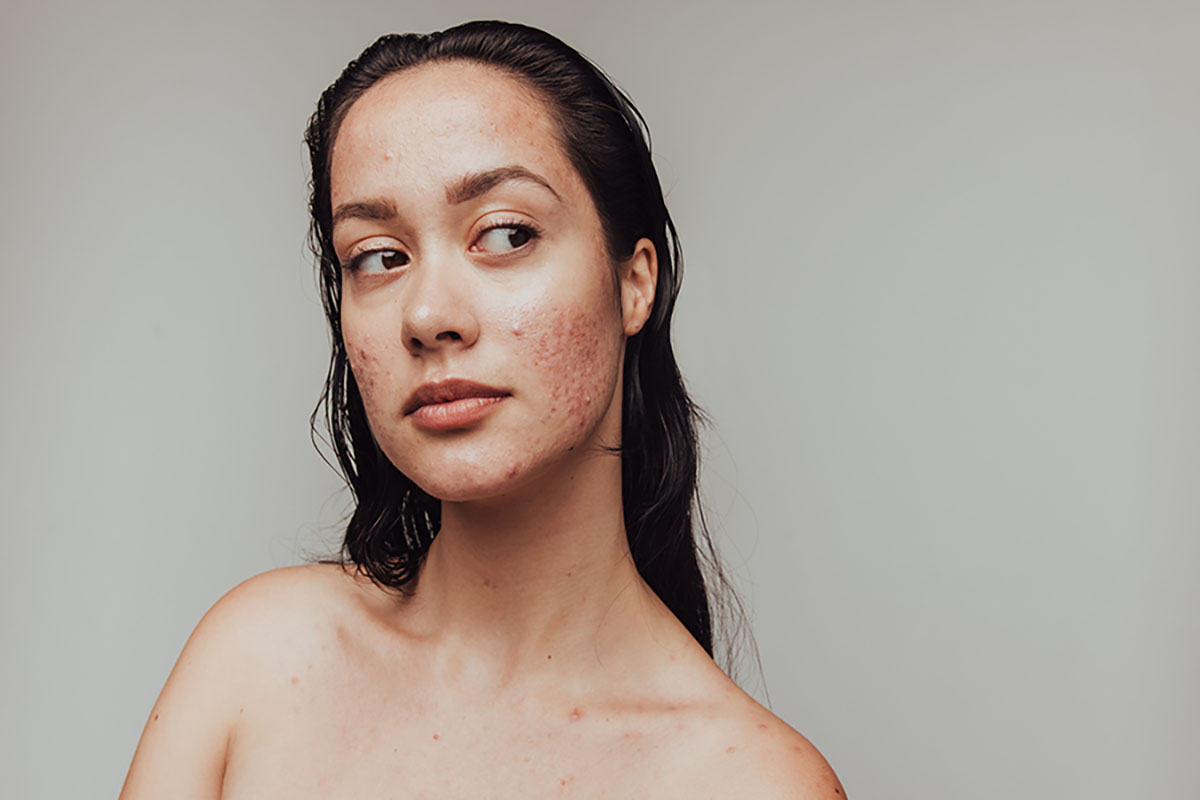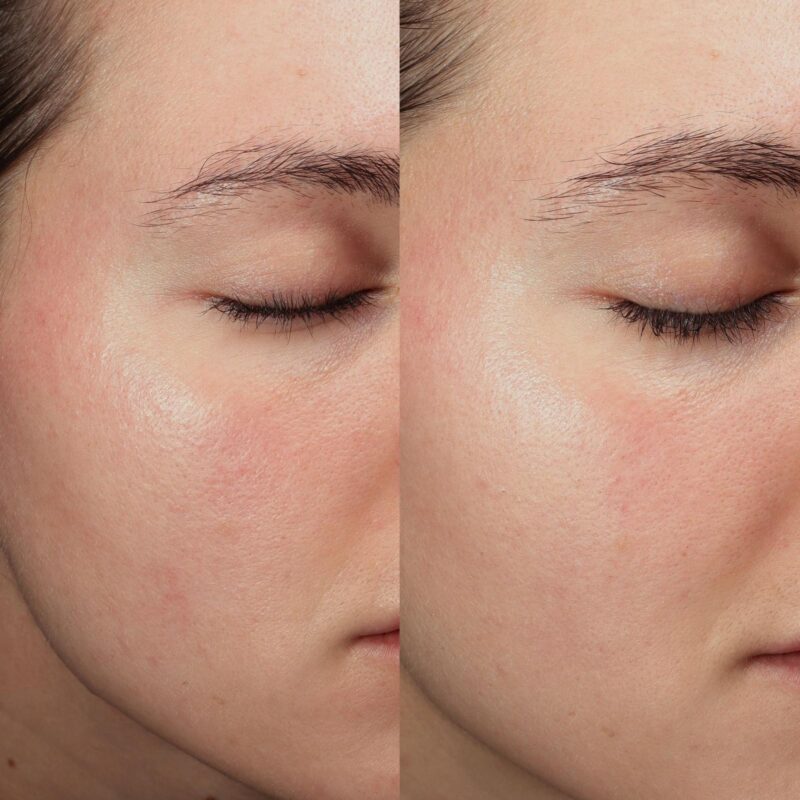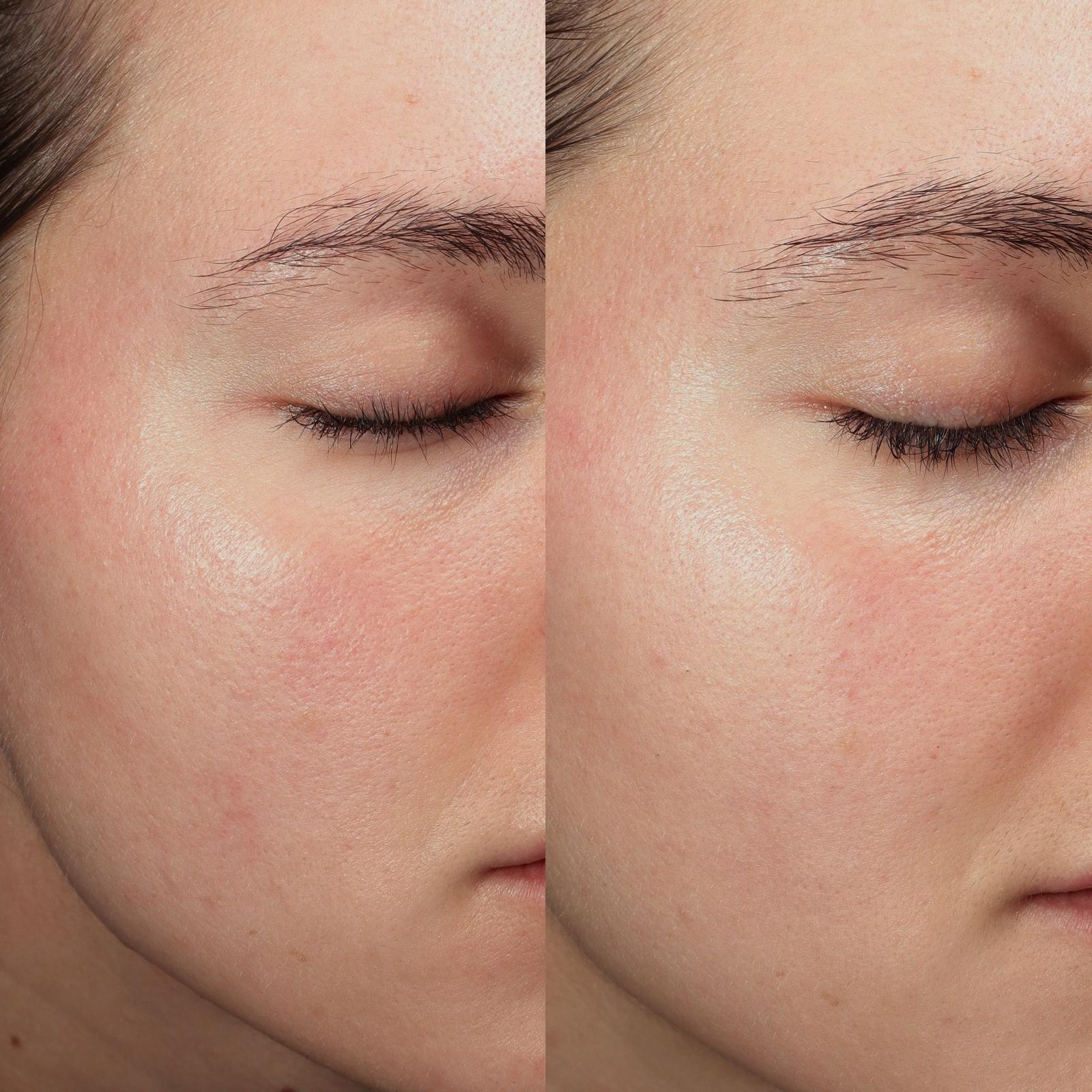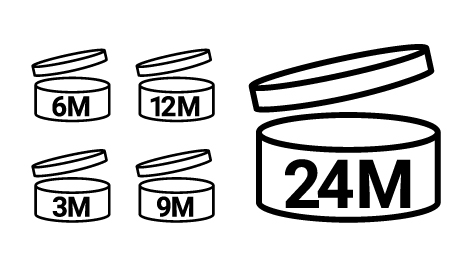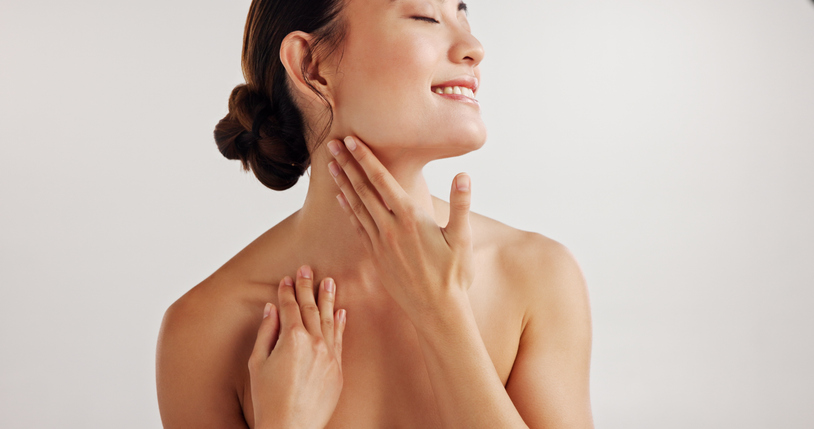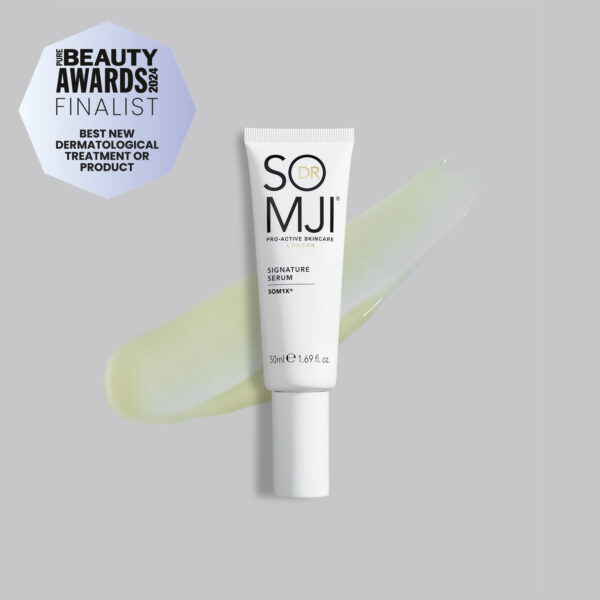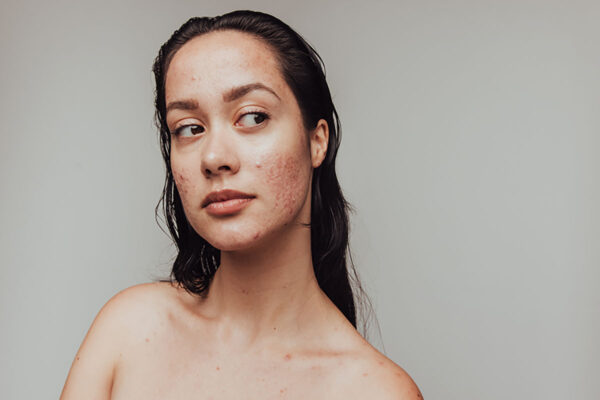
Acne doesn’t always show up in the same way and it rarely appears without a reason. As someone who treats skin every day, I see breakouts as the skin’s way of responding to an imbalance that’s coming from within or being triggered by what’s happening around you. Maybe it’s hormonal shifts before your period, the aftermath of a week of indulgent food or a reaction to a spike in stress.
Acne Awareness Month is a reminder to look beyond just what’s on your skincare shelf. Factors like sleep, diet, stress and daily habits all play a role in how the skin behaves. Understanding what’s contributing to your breakouts is important to finding the right treatment and keeping skin clearer and healthier in the long run. Let’s take a closer look…
Stress is a silent trigger
We often underestimate the impact of stress on the skin. Cortisol is the body’s stress hormone, which can increase oil production and inflammation – two key factors in the development of acne. For many patients, flare-ups coincide with deadlines, times of emotional stress or even poor sleep patterns. Topical treatments can help, but long-term control usually requires lifestyle changes such as prioritising sleep, learning to manage stress and giving the nervous system space to recover.
Hormones are not just a teen problem
Hormonal acne isn’t just an issue for teenagers. I frequently see adult women experiencing breakouts around the jawline, chin and neck. This can be due to fluctuations in oestrogen and progesterone, often related to the menstrual cycle, conditions like PCOS, perimenopause or coming off contraception. These breakouts can be persistent and painful, but they can be managed with the right balance of hormonal support and targeted skincare.
Food for thought
There’s no one-size-fits-all answer when it comes to diet and acne, but research suggests that certain foods can make breakouts worse. Foods high in sugar and processed carbohydrates (often referred to as high-glycaemic foods) as well as dairy, may contribute to increased oil production and inflammation in the body, both of which can trigger or aggravate acne. If you suspect your diet may be triggering your breakouts, keeping a food and skin diary can be a helpful way to identify patterns. Tracking what you eat alongside when flare-ups occur could help you find what is causing your spots.
A compromised skin barrier
Many people with acne turn to harsh scrubs or aggressive treatments, thinking they’ll speed up results. However, stripping the skin can worsen inflammation, disrupt its microbiome and lead to more breakouts. One of the most important and overlooked steps in acne management is supporting the skin barrier.
Our Dr Somji Pro-Active Skincare Anti-Blemish Concentrate is a hard-working, all-in-one blemish buster containing a tried-and-tested ingredient list. Salicylic acid helps to keep pores clear, while bakuchiol offers a gentler alternative to traditional retinoids. We included encapsulated azelaic acid to ease inflammation and treat that post-breakout pigmentation. The added niacinamide and chicory root extract support the skin barrier, helping to reduce redness, soothe irritation and promote healing. Use it daily or apply at the first sign of a blemish. It’s a simple, targeted step that supports clearer and calmer skin.
Whether it’s down to hormones, stress or a weakened skin barrier, the key to managing acne lies in understanding what’s causing it. My approach always starts from the inside out – because real results come from treating the cause, not just the symptoms.
Dr Somji

Dr Munir Somji is a cosmetic surgeon and co-founder of DrMediSpa, located in Marylebone, Knightsbridge and Loughton. He has over a decade of experience in performing and teaching advanced aesthetic non-surgical and surgical procedures. Recognising the impact of skin health and the link to confidence and wellbeing, Dr Somji is passionate about restoring patient confidence and has gained himself a reputation for his meticulous work, reassuring manner and performing treatments that deliver subtle results.


